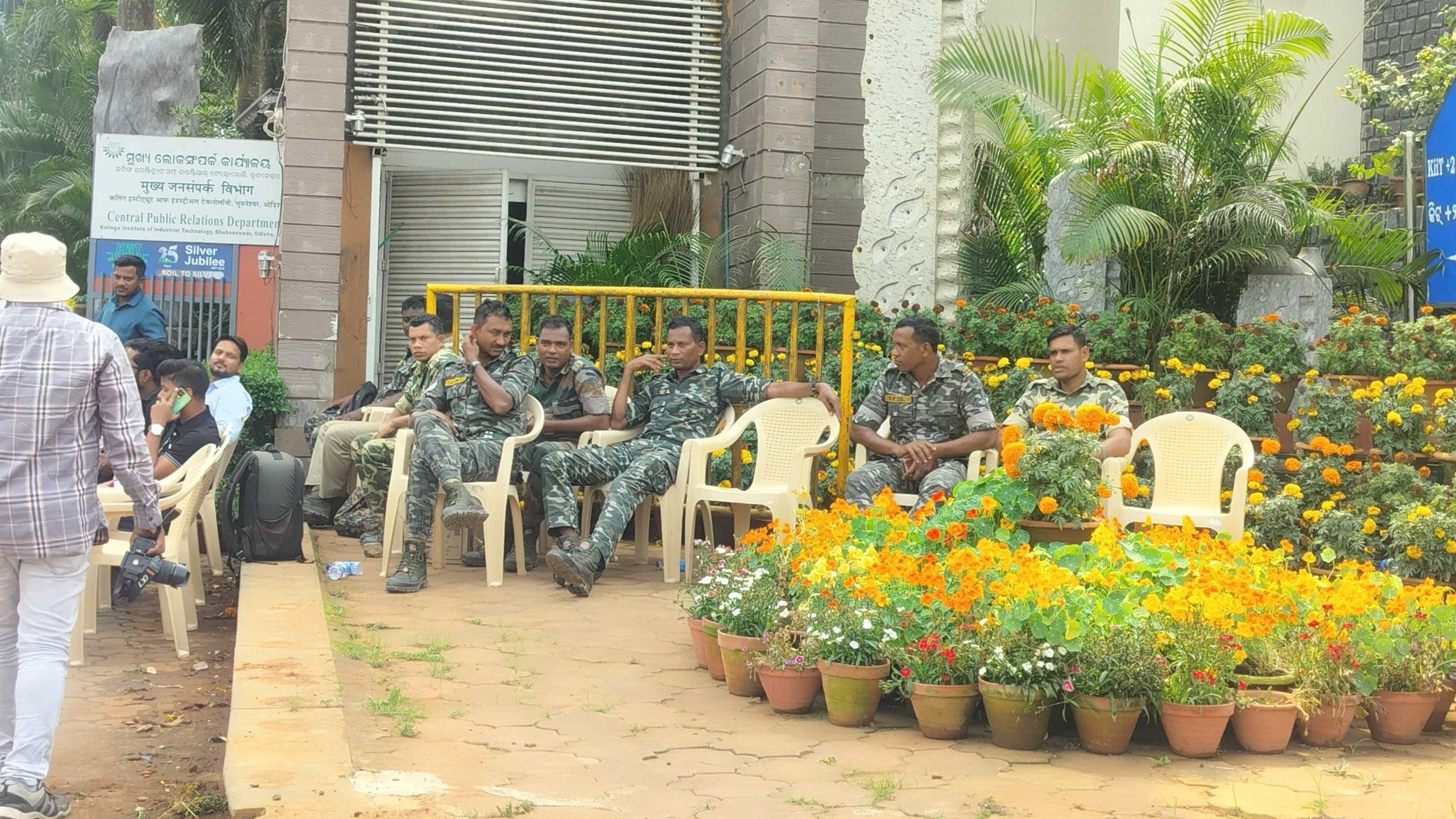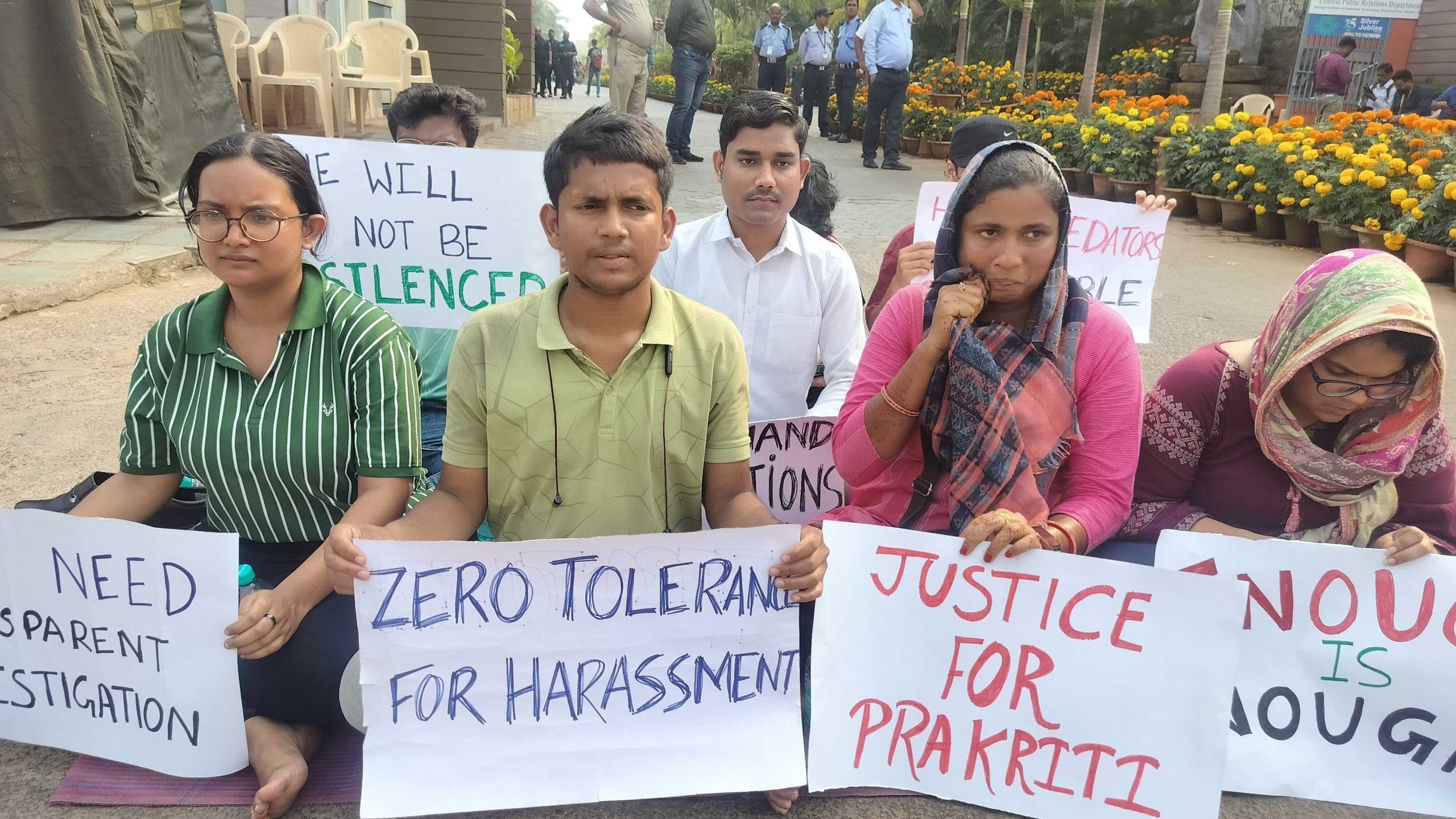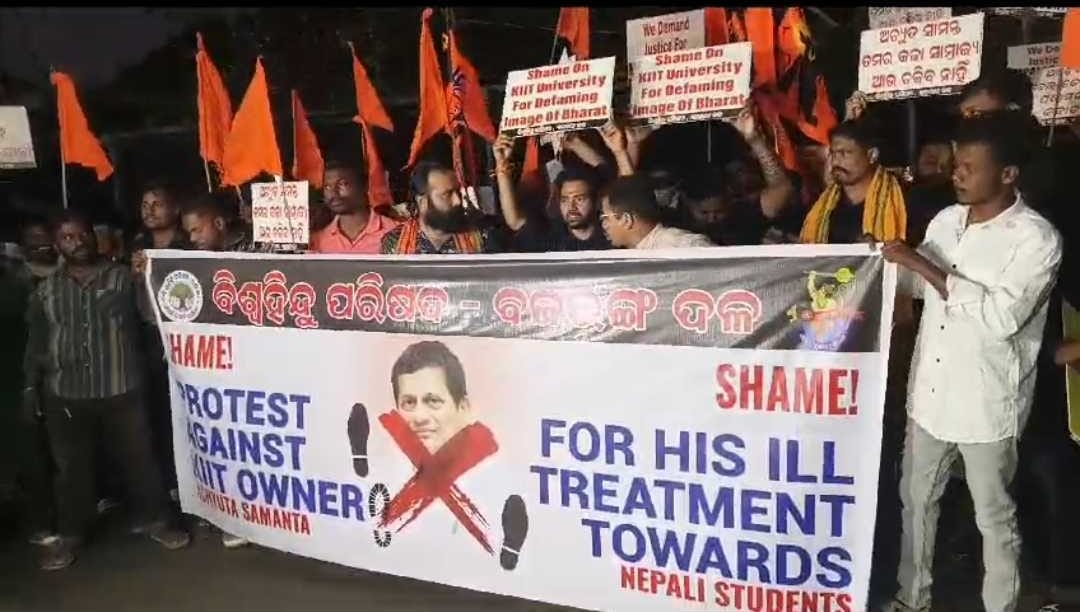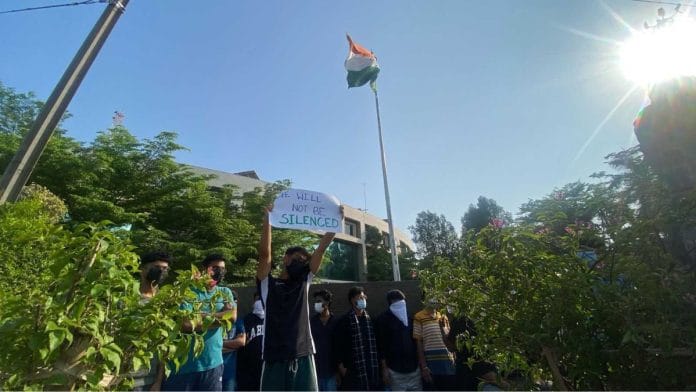Bhubaneswar: Singer-rapper Badshah was at Kalinga Institute of Industrial Technology (KIIT) in Bhubaneswar Sunday to perform at the university’s biggest night of the year, the annual fest. Students had gathered on the grounds wearing their best clothes.
While the music raged, authorities at KIIT, a private university, reportedly made a sombre call to the parents of a student, Prakriti Lamsal.
A third-year BTech computer science student and a Nepal national, Lamsal had allegedly died by suicide that day. Her body was found at her hostel on campus and taken to KIMS hospital where she was declared dead.
WhatsApp groups of Nepalese students on the campus soon began buzzing with the news.
Lamsal was said to have been in a relationship with fellow student Advik Srivastava and was allegedly being harassed by him after she tried to break up with him last October. She had repeatedly lodged complaints against him at the international students’ grievance cell of KIIT.
The students wanted justice for Lamsal, and they all gathered at the central library to demand it.
“We had suspended him (Srivastava) from the university, and had informed the parents as well about his behaviour. We weren’t aware of any communication between the two (Srivastava and Lamsal) after it,” Dr Shradhanjali Nayak, head of the university’s PR department, told ThePrint.
Also Read: KIIT University staff’s behaviour toward Nepali students could harm diplomatic relations
Night of protests
A third-year computer science student stumbled out of Badshah’s concert around 7 pm Sunday to catch his bus back home. As he left the venue in a daze, still smiling and humming the songs, his trance was broken when he approached the central library.
He saw Nepalese students on the grounds yelling: “We want justice, we want justice.”
The students informed him that his batchmate, Prakriti Lamsal, had died by suicide and that her former boyfriend had been harassing her. Srivastava’s Instagram profile was being shared by students in chat groups as they tried to locate him.
By this time, 60-70 students had gathered at the central library. As the number of protesters grew, the students tried going towards Lamsal’s hostel, and the protests picked up steam at Campus 6 of the university.
“Protests at the central library started at 9 pm, and about 100 students marched from there to the Queen’s Castle (4), which was Prakriti’s hostel, and remained there till 1 am,” the student told ThePrint on the condition of anonymity.
Teachers had already started discouraging Indian students from participating “in a protest of Nepalese students”. “One staff member told me that I should go home, and asked why I was participating in a protest of Nepalese students. I told them my batchmate had died, so I was there for her,” he said.
By this time of the night, tension had built up on the campus, with hundreds of students out on the grounds. The students wanted to march to Lamsal’s hostel and demand custody of her phone and laptop, which they alleged were in the possession of the hostel warden.
At 9.51 pm Sunday, Lamsal’s cousin Siddhant, who is also a student at KIIT, lodged a complaint at the Infocity police station in Bhubaneswar.
In the complaint, seen by ThePrint, he alleged that Lamsal’s phone was with the KIIT authorities. “I want you to check for her phone, it must be with the hostel warden. This phone may contain crucial evidence, including messages, call records and other proofs related to blackmail and harassment,” the complaint reads.
Srivastava was booked under Section 108 (abetment to suicide) of the Bharatiya Nyay Sanhita.
Achyuta Samanta, founder of KIIT and a former MP, also reached the campus.
“It is not good to get this excited, you are being very indisciplined. Go back to your hostel and come here day after tomorrow,” Samanta told the protesting students, who refused to listen. “I don’t like this zidd (stubbornness) of yours,” he added.
Around 3-4 am, the students alleged that security guards and state police officers forced them into their dorms and hostel rooms.
Some students left for their homes, or their hostel rooms to get some sleep. Early Monday morning, the university put out a sine die notice asking Nepalese students to immediately leave the campus.
Morning of ‘horror’
“Around 6.30 am, hostel wardens, police personnel and other goons entered our rooms and abused us. The guards I used to shake hands with earlier and was friends with, were grabbing me by my collar. They were yelling: Nepali hai toh maaro (hit them if they are Nepali),” a Nepalese student told ThePrint over the phone.
The student said the college authorities didn’t even give the students time to collect their belongings properly.
“The teachers simply told us that we are no longer part of the university and had been suspended. We were forced into buses of the Odisha Police and dropped at various stations like Bhubaneswar, Cuttack and bus stops. Students, especially first-year students, were having panic attacks,” a second Nepalese BTech student, who is back home, said over phone. “I had to travel in the train’s general compartment to Kolkata, from where I travelled back home.”
Other Nepalese students shared photos of injuries on their head, stomach and hands and recounted the horror of the morning of 17 February, Monday, on WhatsApp groups.
“I live 1,400 km away…1,400. And I was simply kicked out of the hostel without money or clothes, in another country, and I had to find my way back home. My own teachers did it to me. Why will I ever come back?” a third Nepalese student asked.
The students said they had to rely on the benevolence of strangers on the streets for food and money, and to call their parents.
When asked about this, the PR head at KIIT told ThePrint: “We deeply apologise for what happened. But we did what we did because we thought it was the right thing to do at the moment. The crowd was becoming unmanageable.”
When the news of Nepalese students being roughed up and thrown out of the university reached the Nepal government, it took instant action. K.P. Sharma Oli, Nepal’s prime minister, posted on X that two officials from the embassy had been dispatched to the KIIT campus to assist students on the evening of 17 February.
By the evening, parliamentarians in Nepal were fuming over the incident, calling it an insult to the nation.
At the intervention of Nepal and the Odisha government, the sine die notice was lifted by KIIT, with authorities on the backfoot. KIIT has since asked the Nepalese students to return, saying they will cover travel costs.
“They have told us that they’ll cover the travel costs, and nothing of this kind will happen again. But our kids are too scared now, we’re also really scared,” a parent told ThePrint over phone from Nepal.
In a voice recording of an exchange between a student and staff member, heard by ThePrint, a teacher says: “Yes, we made a mistake, but what to do now? We’re saying sorry also. Come back.” The student refuses to comply.
“I will never set foot in that university again,” the second Nepalese student told ThePrint over phone. “Who were these people who had come to beat us up? They were local goons or gym trainers at the university. I was woken up from my bed and beaten up,” he said.
In the meantime, the Odisha Police have registered two FIRs. Two security guards and three staffers have been booked for wrongful restraint of students and causing involuntary hurt.

Protest loses steam
After the alleged forced eviction of Nepalese students from campus, some students gave a protest call, and 200 students reportedly gathered near KIIT chowk to carry out a candle march, demanding justice for Lamsal and an independent investigation.
The protesters sat outside the gate silently till the evening Wednesday as more and more people gathered. But tension was only increasing.

“Around 4 pm, as we were silently protesting with placards around the stretch here, we saw a bunch of men from a political party march towards us. They sat down with the Indian flag and started yelling their agenda. Seeing the situation, we didn’t want our protest to be diluted so we started marching towards Infocity police station,” a student who participated in the protest told ThePrint.
In the meantime, a signboard of ‘I love KIIT’ at the university gate was vandalised.
“We didn’t cause any violence or vandalism. We’re just a bunch of peaceful protesters speaking up for our deceased friend,” the protester said.
As the vandalism put an abrupt end to the candle march, students who reached the KIIT mess said they were asked to give up their phones to their wardens who also demanded to read their messages.
Phone calls were made to the parents of the protesting students, and footage on phones of the happenings of Sunday and Monday was deleted, the students said.
“Our wardens checked our phones to see if we were in touch with any journalists and if we had gone to the protests. They told us that our careers would come to an end,” a second student part of Wednesday’s protest said.
As a result, from 200 to 300, just a handful of students remained to protest at the chowk Wednesday, and they too were dispersed by the police after a meeting was arranged with the education minister. The students tabled a bunch of demands at the meeting, including the formation of a student’s union at KIIT.
In the meantime, members of a three-member panels, including Additional Chief Secretary, Home, Satyabrata Sahu, constituted to probe the alleged suicide and following incidents visited the KIIT campus.
Speaking to the media at the university, Sahu said: “According to instructions of the state government, we have come here and held discussions with various stakeholders. We are here to visit the places where the incidents have taken place. We will also hold discussions with the affected students. We will submit the report to the government in time.”
The commissioner of police was also present at the interaction. “The accused (Srivastava) has been sent to judicial custody and we have sought three days’ remand. The investigation is ongoing,” he said. “There’s normalcy in the university, classes are going on.”

On Thursday night, a group of around 50 Bajrang Dal members staged a protest at the KIIT gates, carrying placards that read, “Shame on KIIT University for defaming Bharat” and chanting “Jai Siya Ram”. The group also demanded the immediate arrest of Achyuta Samanta.
(Edited by Nida Fatima Siddiqui)






